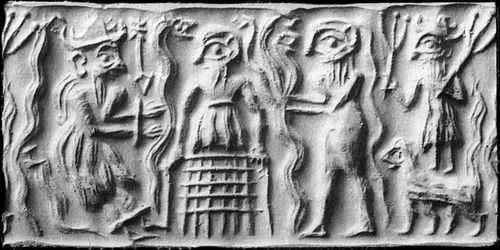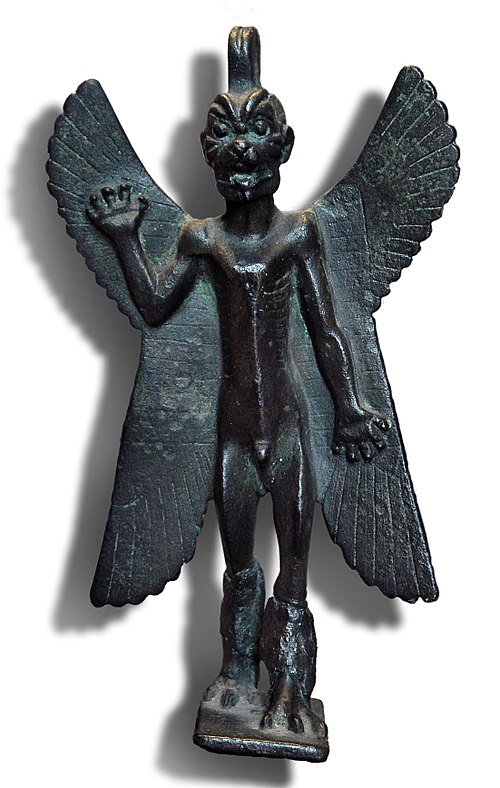Giantnoun
A mythical human of very great size.
Giantnoun
(mythology) Specifically, any of the gigantes, the race of giants in the Greek mythology.
Giantnoun
A very tall person.
Giantnoun
A tall species of a particular animal or plant.
Giantnoun
(astronomy) A star that is considerably more luminous than a main sequence star of the same temperature (e.g. red giant, blue giant).
Giantnoun
(computing) An Ethernet packet that exceeds the medium's maximum packet size of 1,518 bytes.
Giantnoun
A very large organisation.
Giantnoun
A person of extraordinary strength or powers, bodily or intellectual.
Giantnoun
jotun
Giantadjective
Very large.
Giantnoun
A man of extraordinari bulk and stature.
Giantnoun
A person of extraordinary strength or powers, bodily or intellectual.
Giantnoun
Any animal, plant, or thing, of extraordinary size or power.
Giantadjective
Like a giant; extraordinary in size, strength, or power; as, giant brothers; a giant son.
Giantnoun
any creature of exceptional size
Giantnoun
a person of exceptional importance and reputation
Giantnoun
an unusually large enterprise;
Giantnoun
a very large person; impressive in size or qualities
Giantnoun
someone or something that is abnormally large and powerful
Giantnoun
an imaginary figure of superhuman size and strength; appears in folklore and fair tales
Giantnoun
a very bright star of large diameter and low density (relative to the Sun)
Giantadjective
of great mass; huge and bulky;
Giant
In folklore, giants (from Ancient Greek: gigas, cognate giga-) are beings of human-like appearance, but are at times prodigious in size and strength or bear an otherwise notable appearance. The word giant is first attested in 1297 from Robert of Gloucester's chronicle.
Demonnoun
An evil supernatural spirit.
Demonnoun
An evil spirit resident in or working for Hell; a devil.
Demonnoun
A false god or idol; a Satanic divinity.
Demonnoun
A very wicked or malevolent person; also in weakened sense a mischievous person, especially a child.
Demonnoun
A source (especially personified) of great evil or wickedness; a destructive feeling or character flaw.
Demonnoun
(in plural) A person's fears or anxieties.
Demonnoun
A neutral supernatural spirit.
Demonnoun
A person's inner spirit or genius; a guiding or creative impulse.
Demonnoun
(Greek mythology) A tutelary deity or spirit intermediate between the major Olympian gods and mankind, especially a deified hero or the entity which supposedly guided Socrates, telling him what not to do.
Demonnoun
A spirit not considered to be inherently evil; a (non-Christian) deity or supernatural being.
Demonnoun
An hypothetical entity with special abilities postulated for the sake of a thought experiment in philosophy or physics.
Demonnoun
Someone with great strength, passion or skill for a particular activity, pursuit etc.; an enthusiast.
Demonnoun
A form of patience (known as Canfield in the US).
Demonnoun
A spirit, or immaterial being, holding a middle place between men and deities in pagan mythology.
Demonnoun
One's genius; a tutelary spirit or internal voice; as, the demon of Socrates.
Demonnoun
An evil spirit; a devil.
Demonnoun
one of the evil spirits of traditional Jewish and Christian belief
Demonnoun
a cruel wicked and inhuman person
Demonnoun
someone extremely diligent or skillful;
Demon
A demon is a supernatural being, typically associated with evil, prevalent historically in religion, occultism, literature, fiction, mythology, and folklore; as well as in media such as comics, video games, movies, anime, and television series. In Ancient Near Eastern religions and in the Abrahamic traditions, including ancient and medieval Christian demonology, a demon is considered a harmful spiritual entity which may cause demonic possession, calling for an exorcism.






















